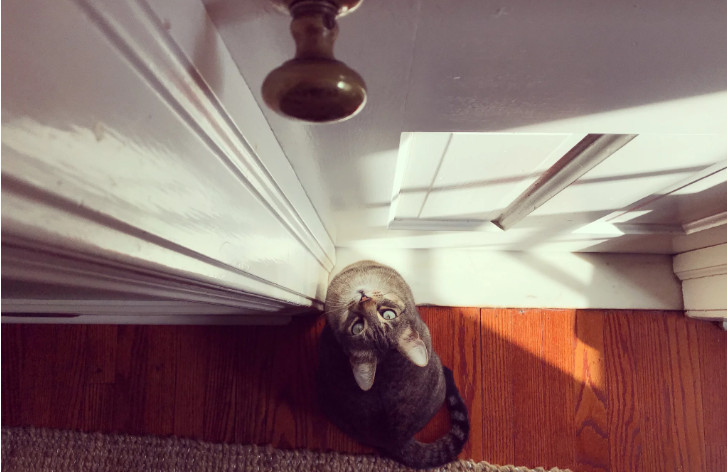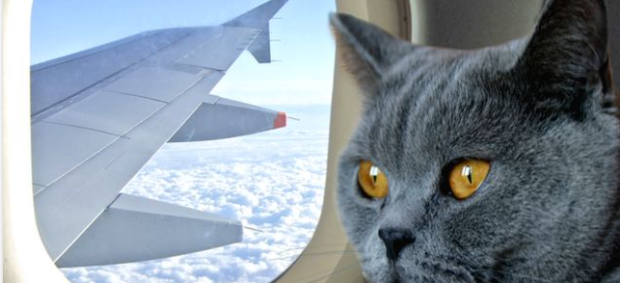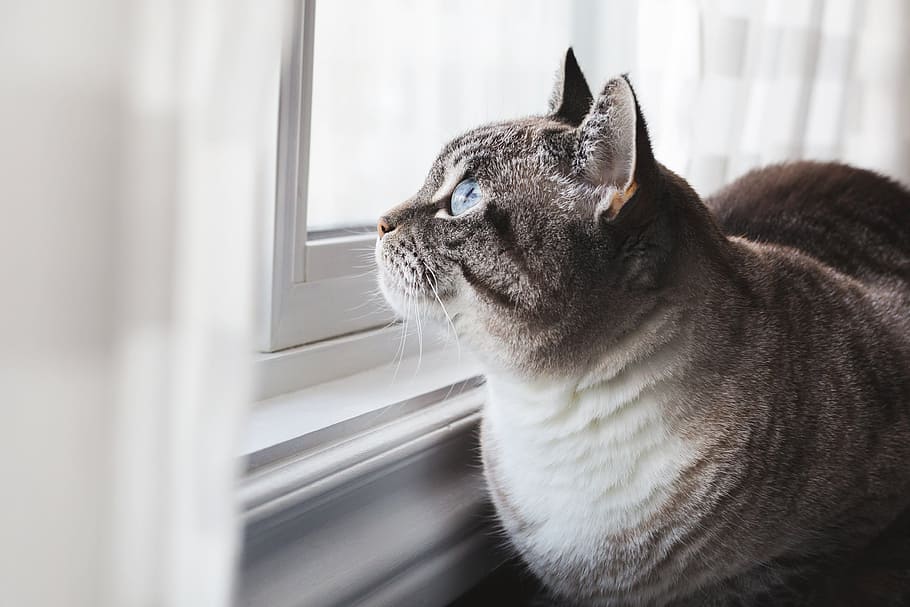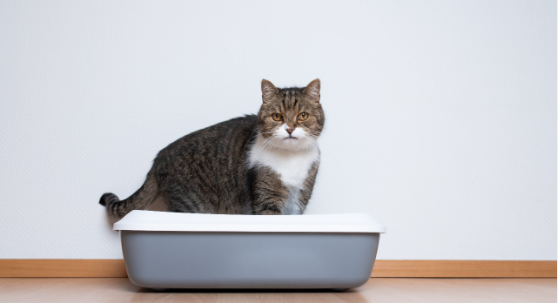Why Do Cats Hate Closed Doors?
If you’re a cat owner, you may have noticed that your feline friend has a strong aversion to closed doors. Whether it’s the bathroom door, bedroom door, or closet door, cats seem to loathe the idea of doors being shut. But have you ever wondered why this is the case? In this article, we’ll explore the reasons why cats hate closed doors and offer some helpful solutions to alleviate this behavior.
Cat Sitting Outside Door
Cats are Naturally Curious Creatures
Cats are naturally curious creatures that love to explore their environment. This instinctive behavior is essential for their physical and mental well-being. When a door is closed, it prevents them from satisfying their curiosity and exploring new areas, which can lead to frustration and anxiety.
Closed Doors Disrupt Their Routine and Exploration
Cats thrive on routine, and a closed door can disrupt their daily routine. For example, if your cat is used to sleeping in a particular room, and that room’s door is closed, they may feel like their daily routine is disrupted. This can cause them to become anxious and stressed, leading to behavioral issues.
Additionally, closed doors can prevent cats from exploring and accessing certain parts of their environment, such as their litter box, food, and water bowls, or favorite hiding spots. This can cause them to become frustrated and anxious, leading to destructive behavior, excessive meowing, or litter box issues.
Sense of Confinement and Restriction
Cats are creatures of habit, and when they are unable to access a room they are used to being in, they can feel confined and restricted. This can cause them to become anxious and stressed, leading to a range of behavioral issues.
Moreover, when a door is closed, it can create a sense of confinement and restriction for cats, which can trigger their fight-or-flight response. This can cause them to become anxious and stressed, leading to behavioral issues such as aggression, excessive meowing, or destructive behavior.
Potential Anxiety and Stress
When a cat is unable to access a room or space they are used to, it can cause them to feel anxious and stressed. This can manifest in a variety of ways, including destructive behavior, excessive meowing, litter box issues, or hiding.
Moreover, if a cat has had a negative experience with a closed door in the past, such as being locked in a room for an extended period, they may develop a phobia of closed doors. This can cause them to become anxious and stressed whenever they encounter a closed door, leading to behavioral issues.
Overall, understanding the reasons behind cats hating closed doors is crucial for addressing their behavior and ensuring their well-being. By implementing the solutions mentioned earlier, you can help alleviate their anxiety and stress and create a safe and stimulating environment for your feline friend.
Creating a Safe and Stimulating Environment for Your Cat
In addition to implementing the solutions mentioned earlier, there are several other things you can do to create a safe and stimulating environment for your cat. These include:
- Providing plenty of toys and scratching posts to keep your cat entertained and mentally stimulated.
- Creating cozy hiding spots, such as cardboard boxes or cat trees, for your cat to retreat to when they need a break.
- Offering a variety of textures and surfaces, such as rugs, blankets, and scratching posts, for your cat to explore and scratch.
- Ensuring your cat has access to plenty of fresh water and nutritious food at all times.
- Keeping your cat’s litter box clean and easily accessible.
By creating a safe and stimulating environment for your cat, you can help alleviate their anxiety and stress and ensure they feel comfortable and happy in their home.
Spend Quality Time with Your Cat
One of the best ways to create a positive and happy environment for your cat is by spending quality time with them. This can include playing with them, petting them, or simply spending time in the same room with them. Not only will this help strengthen the bond between you and your cat, but it will also help keep them mentally and physically stimulated.
Provide Vertical Space
Cats love to climb and explore, so providing them with vertical space is essential for their well-being. This can be done by installing a cat tree, and shelves, or providing access to high places such as windowsills or bookshelves. By providing your cat with plenty of vertical space, you’ll help satisfy their natural instincts and keep them mentally and physically stimulated.
Use Pheromone Products
If your cat is experiencing excessive anxiety or stress, using Pheromone products can help alleviate their symptoms. Pheromone products mimic the natural pheromones that cats produce, helping to calm them down and reduce their stress levels. These products come in a variety of forms, including sprays, diffusers, and collars.
Maintain a Consistent Routine
Cats thrive on routine, so maintaining a consistent routine is essential for their well-being. This includes feeding them at the same time each day, providing access to their litter box, and spending quality time with them. By maintaining a consistent routine, you’ll help keep your cat mentally and physically stimulated and reduce their stress levels.
Final Thoughts
Cats hating closed doors is a common behavior that can be caused by several factors, including their natural curiosity, disrupted routine and exploration, sense of confinement and restriction, and potential anxiety and stress. However, by implementing the solutions discussed earlier and providing your cat with a safe and stimulating environment, you can help alleviate their anxiety and stress and ensure they feel comfortable and happy in their home.
Remember to spend quality time with your cat, provide them with vertical space, use pheromone products if necessary, and maintain a consistent routine. By doing so, you’ll create a positive and happy environment for your feline friend to thrive in.
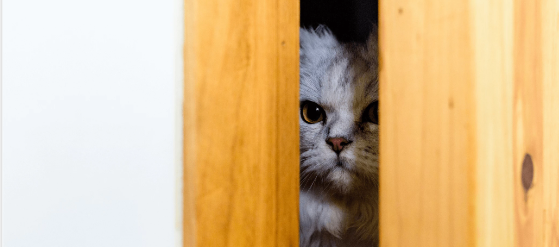
Frequently Asked Questions
Q: What if my cat’s dislike of closed doors is sudden?
A: If your cat’s dislike of closed doors is sudden, it’s important to rule out any underlying medical conditions that may be causing the behavior. Schedule an appointment with your vet to rule out any health issues.
Q: Is it possible for a cat to develop a phobia of closed doors?
A: Yes, it is possible for a cat to develop a phobia of closed doors. This can occur if the cat has had a negative experience with a closed door in the past.
Q: How do I know if my cat is stressed or anxious?
A: There are several signs that your cat may be experiencing stress or anxiety, including excessive meowing, hiding, destructive behaviour, litter box issues, and loss of appetite. If you notice any of these signs, it’s important to address the issue promptly to prevent it from escalating.
In conclusion, cats hate closed doors for a variety of reasons, including their natural curiosity, disrupted routine and exploration, sense of confinement and restriction, and potential anxiety and stress. However, there are several solutions to alleviate this behaviour, including installing a cat door or screen door, using a doorstop to keep the door slightly open, encouraging exploration and providing alternative hiding spots, gradually desensitizing your cat to closed doors, and seeking professional help if necessary.
By understanding the reasons behind your cat’s behaviour and implementing these helpful solutions, you can help alleviate their anxiety and stress and ensure that they feel comfortable and happy in their home. So next time your cat meows at a closed door, remember that there’s a reason behind their behaviour and a solution to help alleviate it.

